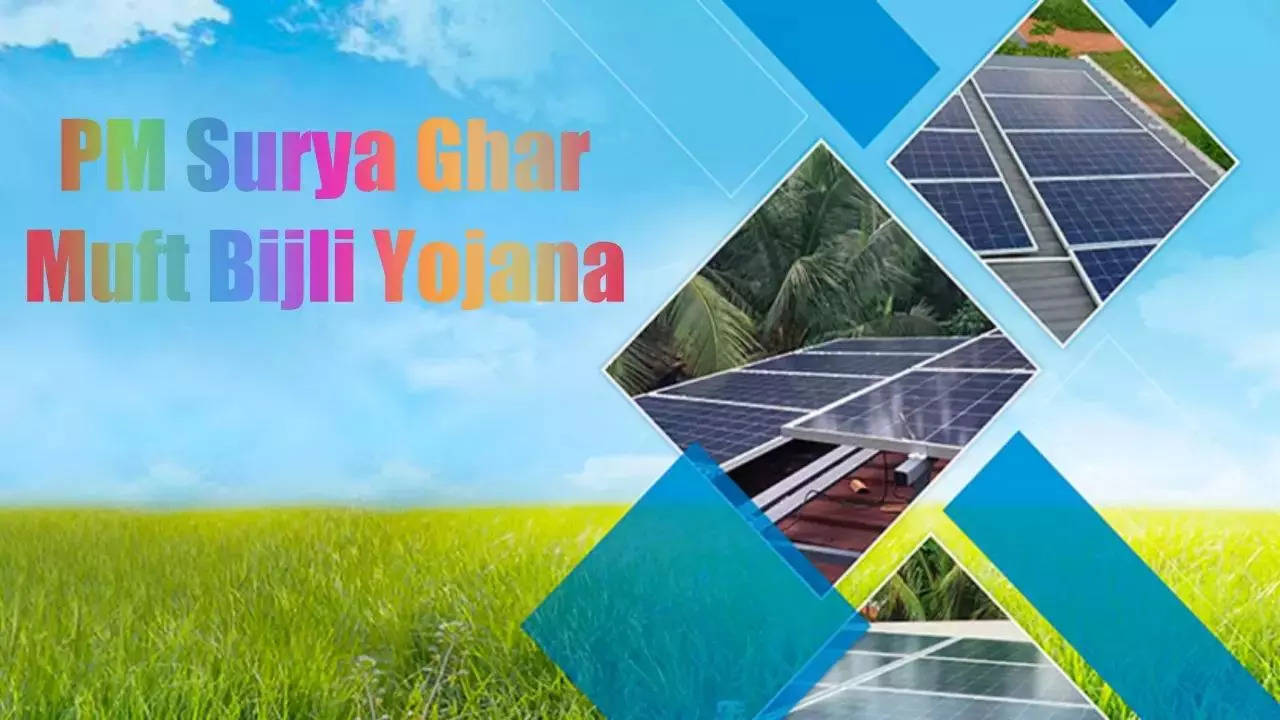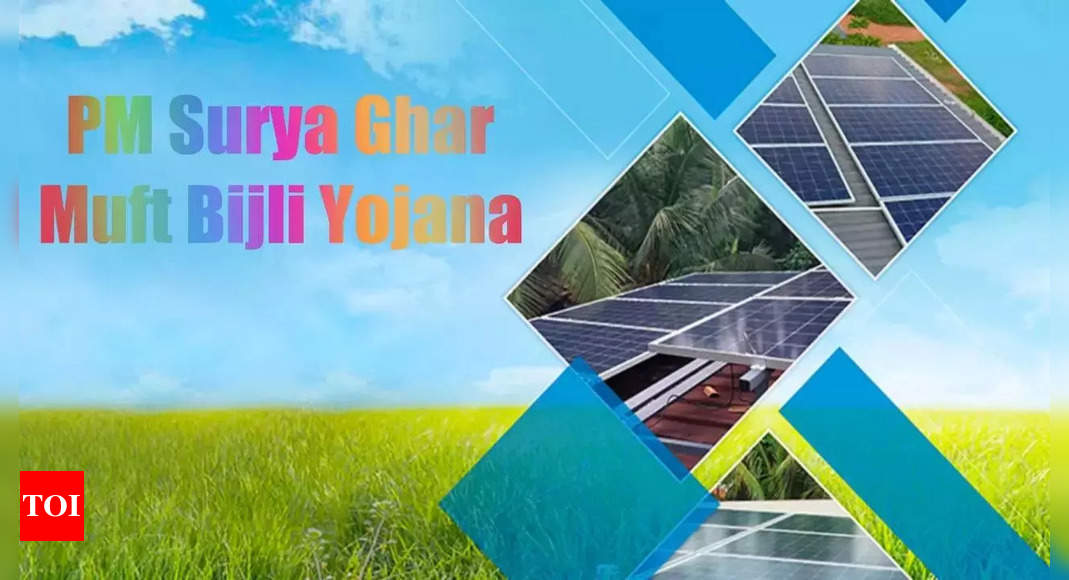
NEW DELHI: The Union Cabinet has approved ‘PM-Surya Ghar: Muft Bijli Yojana’ scheme aimed at installing rooftop solar and providing free electricity to one crore households.
The total outlay for the scheme launched by PM Modi on February 13, 2023 is Rs 75,021 crore.
Information and Broadcasting minister Anurag Thakur, addressing a press conference highlighted that the PM-Surya Ghar scheme will not only promote solar energy but also boost the solar manufacturing and supply chain, which eventually will be providing direct employment to around 17 lakh people.
Residential rooftop solar installations in this scheme will receive central financial assistance (CFA) that will cover 60% of the system cost for 2 kW systems and 40% of the additional system cost for systems between 2 to 3 kW capacity.
The maximum CFA will be capped at 3 kW. This means that a 1 kW system will receive a subsidy of Rs 30,000, a 2 kW system will receive Rs 60,000, and a 3 kW system or higher will receive Rs 78,000 or more.
To avail the subsidy, households can apply through the National Portal and choose a suitable vendor for the installation of rooftop solar. The National Portal will provide relevant information and assistance in decision-making, including system sizes, benefits calculator, and vendor rating.
Additionally, households will have access to collateral-free, low-interest loan products for the installation of residential rooftop solar systems up to 3 kW. The interest rate for these loans is currently set at around 7%.
To encourage the adoption of rooftop solar in rural areas, a model solar village will be developed in each district of the country. Urban local bodies and Panchayati Raj Institutions will also receive incentives for promoting rooftop solar installations in their areas.
The scheme also includes a component for payment security for renewable energy service company (RESCO) based models, as well as a fund for innovative projects in rooftop solar.
By implementing the PM-Surya Ghar scheme, households will not only be able to save on electricity bills but also earn additional income by selling surplus power to DISCOMs. On average, a 3 kW system can generate more than 300 units of electricity per month.
The scheme aims to add 30 GW of solar capacity through rooftop solar in the residential sector, generating 1000 BUs of electricity and reducing 720 million tonnes of CO2 equivalent emissions over the 25-year lifetime of the rooftop systems. This ambitious initiative is also expected to create around 17 lakh direct jobs in manufacturing, logistics, supply chain, sales, installation, O&M, and other services.
The total outlay for the scheme launched by PM Modi on February 13, 2023 is Rs 75,021 crore.
Information and Broadcasting minister Anurag Thakur, addressing a press conference highlighted that the PM-Surya Ghar scheme will not only promote solar energy but also boost the solar manufacturing and supply chain, which eventually will be providing direct employment to around 17 lakh people.
Residential rooftop solar installations in this scheme will receive central financial assistance (CFA) that will cover 60% of the system cost for 2 kW systems and 40% of the additional system cost for systems between 2 to 3 kW capacity.
The maximum CFA will be capped at 3 kW. This means that a 1 kW system will receive a subsidy of Rs 30,000, a 2 kW system will receive Rs 60,000, and a 3 kW system or higher will receive Rs 78,000 or more.
To avail the subsidy, households can apply through the National Portal and choose a suitable vendor for the installation of rooftop solar. The National Portal will provide relevant information and assistance in decision-making, including system sizes, benefits calculator, and vendor rating.
Additionally, households will have access to collateral-free, low-interest loan products for the installation of residential rooftop solar systems up to 3 kW. The interest rate for these loans is currently set at around 7%.
To encourage the adoption of rooftop solar in rural areas, a model solar village will be developed in each district of the country. Urban local bodies and Panchayati Raj Institutions will also receive incentives for promoting rooftop solar installations in their areas.
The scheme also includes a component for payment security for renewable energy service company (RESCO) based models, as well as a fund for innovative projects in rooftop solar.
By implementing the PM-Surya Ghar scheme, households will not only be able to save on electricity bills but also earn additional income by selling surplus power to DISCOMs. On average, a 3 kW system can generate more than 300 units of electricity per month.
The scheme aims to add 30 GW of solar capacity through rooftop solar in the residential sector, generating 1000 BUs of electricity and reducing 720 million tonnes of CO2 equivalent emissions over the 25-year lifetime of the rooftop systems. This ambitious initiative is also expected to create around 17 lakh direct jobs in manufacturing, logistics, supply chain, sales, installation, O&M, and other services.
Source link

